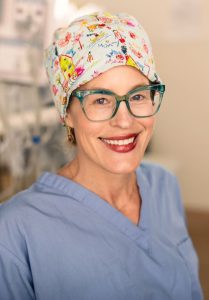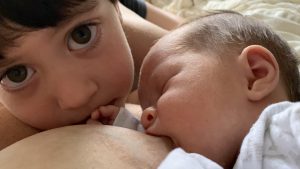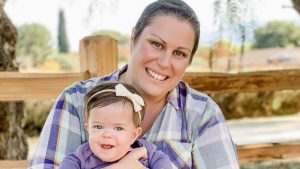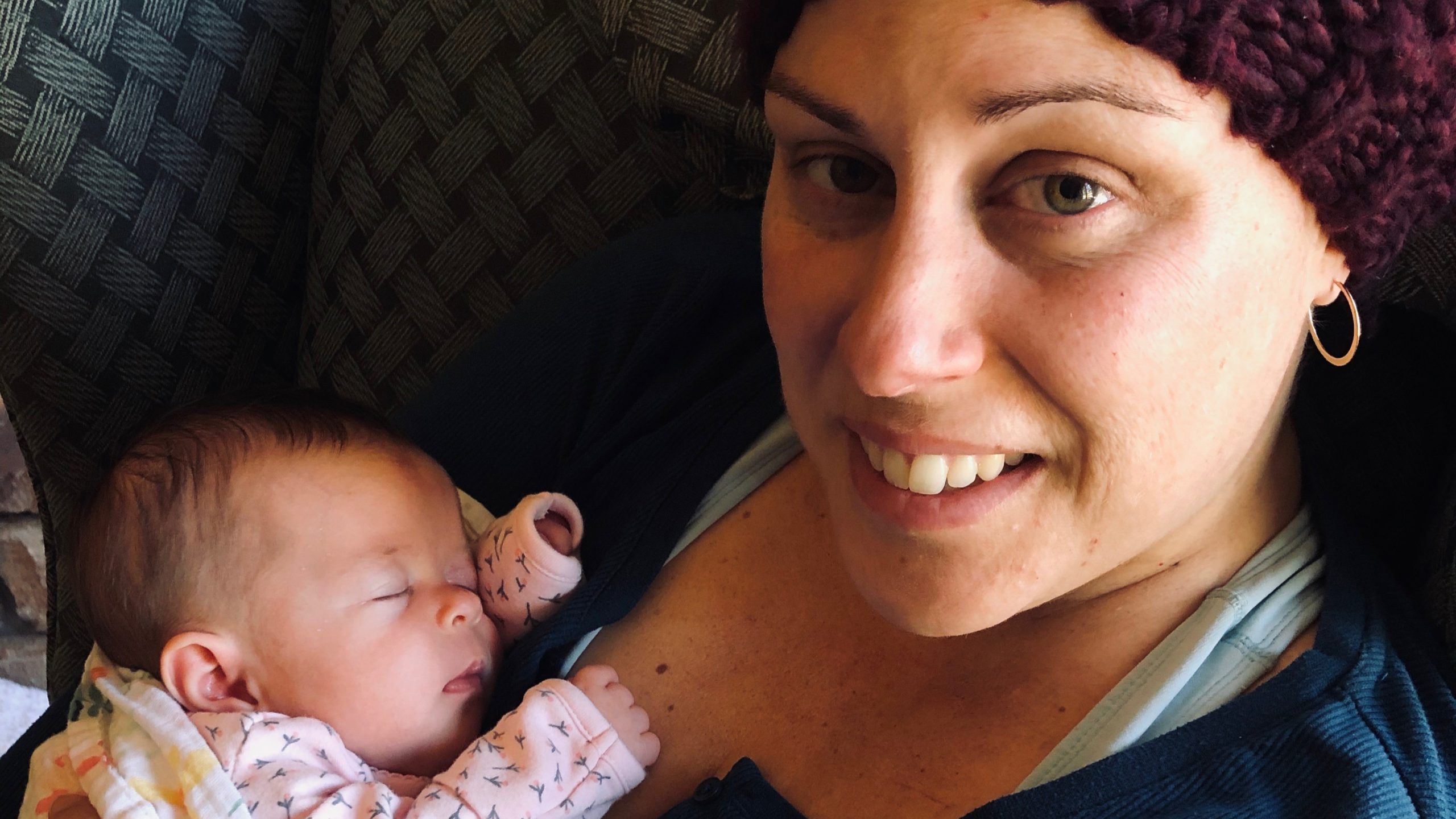At age 36, Lindsay Himmetoglu was 8 months pregnant and breastfeeding her young son, Lev when she assumed pain in her breast was just a plugged duct. “It’s probably my body ramping up for the new baby,” she told herself. The lump unfortunately turned out to be triple negative breast cancer, a disease type more common in younger women that tends to grow and spread fast.
“I was working on my new baby’s birth quilt with my mom when the call came about my diagnosis,” shares Himmetoglu. “Your mind goes blank and panic sets in.”
Dr. Katrina Mitchell, a breast surgical oncologist at Ridley-Tree Cancer Center, now part of Sutter Health, met with Himmetoglu to discuss the care and treatment of her cancer. As a labor and delivery nurse, Himmetoglu understood the health benefits of breastfeeding and fervently hoped the cancer would not mean she had to stop. Dr. Mitchell reassured her that continuing to breastfeed was safe, and that it would not affect her son, but they would need a plan to end it before chemotherapy. “Dr. Mitchell was so supportive, and she knew exactly how we’d handle it,” Himmetoglu recalls. “I felt like I could breathe a little bit.”

Dr. Katrina Mitchell, Breast Surgical Oncologist
In addition to her role as a breast surgeon, Dr. Mitchell is also a certified lactation consultant and a rare medical expert in “oncolactation,” a term she coined to describe the intersection of breastfeeding and cancer, a topic she noticed was missing from medical education.
Most doctors know breastfeeding lowers breast cancer risk; however, not all physicians might understand how patients should manage it during cancer screenings and imaging, diagnostic evaluations like biopsies, radiation and chemotherapy, breast conservation surgeries and mastectomies, and in their lives after cancer.
Dr. Mitchell addressed this knowledge gap by co-authoring a set of guidelines. The American Society of Breast Surgeons published this resource guide which was provided to physicians across the country.
“Fewer women are dying from breast cancer, but more and more cases of the disease are in women under 40. These patients face unique challenges beyond their disease; body image, fertility, sexual function, early menopause, and of course breastfeeding,” remarked Dr. Mitchell. “While it’s our job to cure cancer, we have many opportunities to further improve upon caring for the whole patient,”
Breast cancer patients of childbearing age should talk with their doctors about breastfeeding, but access to accurate guidance is critical, so they understand their options and are empowered to make decisions which are right for them, according to Dr. Mitchell.
“Breast screenings and breast biopsies are safe during breastfeeding or pregnancy, and both women and physicians should be aware of the strategies to continue or pause and restart lactation during several types of cancer treatment,” she adds.
Himmetoglu was sitting in Dr. Mitchell’s office when her first contractions came. After she delivered Eva, the new mother nursed her baby for three weeks while also pumping and storing breastmilk for future use. “Eva latched right away, and I relished every moment with her,” gushes Himmetoglu.

Lev and baby Eva
Dr. Mitchell prescribed medication to halt breastmilk production so Himmetoglu would not be engorged when starting chemotherapy, and an antidepressant to calm the hormonal, emotional waves she was experiencing.
Eva drank donated breastmilk for 16 months thanks to a local breast milk donation network and it proved to be vital for her health. After birth, Eva was diagnosed with spontaneous achondroplasia (dwarfism). In addition to contributing to her nutrition, the breastmilk’s texture made it easier for the infant to drink amidst breathing challenges.

Lindsay Himmetoglu and Eva
“Dr. Mitchell was so helpful in managing those breastfeeding intricacies which mattered for my daughter. It literally saved her life,” explains Himmetoglu.
The subsequent journey of her stage 4 breast cancer diagnosis proved to be difficult as she moved through surgery and different therapies. “This is the game we are playing with triple negative breast cancer,” she admits. “It mutates around the treatments we are trying.” She is grateful still, to have an ally in Dr. Mitchell. “She is such a gift to this community, and she made an overwhelming and heartbreaking situation more manageable with her help and support. “
Note: This content is not intended to be a substitute for professional medical advice, diagnosis or treatment. Always seek the advice of your physician or other qualified health provider with any questions you may have regarding a medical condition. Never disregard professional medical advice or delay in seeking it because of something you have read on this website.





